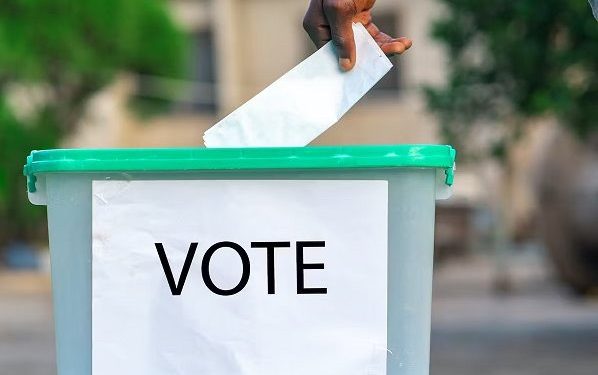Women form 50.7% of Ghana’s population but just about six percent of them get elected in District-level elections. Analysis of two data sets obtained from the National Association of Local Authorities of Ghana (NALAG), and the Electoral Commission (EC) of Ghana, through a Right to Information request, show that since 1994, about 2,059 females have been elected in total as against a staggering 34,460 males.
The highest number of elected women was recorded in 2006 when 478 got elected as Assembly Members even though still insignificant compared to the number of mails elected.

The statistics also show that since 2010, the number of women elected as assembly members has been declining. Even with the power of appointment of Metropolitan, Municipal, and District Chief Executives (MMDCEs), the figures are less than impressive as only 38 women representing a mere 15 percent, made it to the list.
Women’s representation in the District Assemblies has fallen short of the 30 per cent UN-recommended minimum threshold since the introduction of the decentralized system in Ghana in 1988. This is despite the many treaties and conventions the country has signed on to promote gender equality and diversity in decision-making. Regrettably, after many years of advocacy, it appears the much-anticipated Affirmative Action Bill will still have to wait another haul, as Ghana’s Speaker of Parliament recently rejected calls for the passage of the bill under a certificate of urgency.
Ghana’s decentralization agenda in the promise of delivering governance at the doorstep of the people provides opportunities in the communities where both women and men discover their voices, assert their rights and mobilize to achieve developmental goals. However, factors such as women’s concerns over public abuse, time constraints, lack of adequate role models, family concerns about their prospects, and economic challenges amidst partisan impact negatively on the participation of women in district-level elections.
As emphasized in a keynote presentation by local government expert, Dr Esther Ofei-Aboagye, “local government is the basic arena for social services that impact on women’s reproductive and domestic activities”. There is therefore the need to raise the level of gender equality by voting more women into the District Assemblies to promote inclusion; equitable allocation of public resources and public accountability. The continuous underrepresentation of women in political decision-making in Ghana jeopardizes the country’s potential to harness diverse leadership opportunities and to realize the Sustainable Development Goals.
On Tuesday, December 19, 2023, Ghanaians will head to the polls in the 8th District Assembly elections to elect assembly and unit committee members. The elections are expected to take place in 6,272 electoral areas and 38,622 polling stations nationwide in 259 districts out of a total of 261. At a press conference to announce the date for the elections, the Chairperson of the Commission, Mrs Jean Mensa, said the Commission had targeted a 60 per cent voter turnout for this year’s DLE, appealing to the media to help create awareness and educate the public on the essence of the exercise.
There is evidence to suggest that media visibility strongly improves the chances of women being more heard and seen, and also getting elected. As agenda setters and influencers of public opinion, the Ghanaian media must support the #Voteforwomen agenda by using their platforms to feature more women; and influence opinion on the importance of women’s presence in the local assembly leadership, shattering misconceptions and hindrances. They should also play the balancing role of ensuring a level playing field and resisting the negative narratives and control of information by class, partisanship, economic interests, gender and social status.
Local-based media must particularly project women candidates in their localities, highlighting their capacities, strengths, visions, and track records and communities must include them in local governance processes. They should endeavour to provide news in language and format that people can access to keep women on the front burner of the minds of citizens.
Ahead of the 2023 DLE, several organisations such as the Media Foundation for West Africa, Alliance for Women in Media Africa (AWMA), Abantu for Development, and the National Commission for Civic Education (NCCE) have engaged extensively in capacitating female aspirants and creating more opportunities for increased women’s visibility while also conscientizing Ghanaians to vote for more women.
Let’s be deliberate!
Vote for a woman; change the status quo.
Best wishes to all the phenomenal women contesting the 2023 District Level Elections.
Authored by Abigail Larbi, Programmes Manager at the Media Foundation for West Africa (MFWA).
Latest Stories
-
World writers to convene in Moscow for second WOW congress
1 minute -
Experts to spotlight spiritual and cultural values at World Public Assembly in Russia
7 minutes -
Today’s Front pages: Wednesday, August 20, 2025
30 minutes -
CDS presents promotions and benefits to families of helicopter crash victims
2 hours -
Albert Amekudzi: A bleeding nation with no conscience, values and morals
2 hours -
GTA boss becomes first recipient of GH¢150,000 Ghana Gold Pendant
2 hours -
King Mohammed VI orrders additional humanitarian aid to Gaza
2 hours -
Kremlin plays down Zelensky talks as Trump warns Putin may not want to make deal
3 hours -
Mahama touts ‘Big Push’ agenda, urges Japan to invest in energy, agribusiness and manufacturing
3 hours -
Ghana cedi is world’s best-performing currency – Mahama tells investors in Japan
3 hours -
Mahama touts cedi stability, ratings upgrade and open-door investment reforms in Japan
4 hours -
Mahama courts Japanese investors, highlights Ghana’s gateway to Africa’s 1.4 billion market
4 hours -
Netanyahu accuses Australian PM of ‘betraying’ Israel
4 hours -
Musk’s SpaceX, others win US court challenge to labor board’s structure
5 hours -
Delta, United sued for selling windowless ‘window seats’
5 hours

